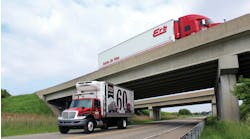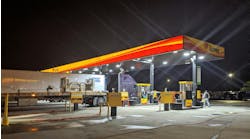To Rebecca Brewster, president of American Transportation Research Institute (ATRI), policy makers today face a conundrum in preventing the highway trust fund from going bankrupt: a sizable bump in fuel taxes is the best solution, but the most politically unpopular at a time when U.S. gas prices are well over $3 per gallon.
Last week the ATRI, the research arm of the American Trucking Assns. (ATA) concluded that raising fuel taxes is the most efficient solution to balancing the highway budget, citing relatively low collection overhead.
“We’ve seen a real reluctance to increase the motor fuel tax because of the political side of things,” Rebecca Brewster told FleetOwner. “But the research has shown us that fuel tax is the most efficient way. We operate in the research world, not policy.”
Read ATA think tank says taxes, not tolls.
ATRI isn’t alone. Congressional Budget Office (CBO) Deputy Director Donald B. Marron said fuel taxes provide a relative stable source of revenue with low collection costs and minimal evasion at a testimony before the House Transportation Committee in March. CBO estimates that the fund will go bankrupt in 2009 based on the 2005 revenue scheme.
CBO said the highway trust funds will receive an estimated $40.2 billion in 2007, but Congress has authorized spending of as much as $48.3 billion.
Tolling has gained momentum for two reasons: leasing corridors to private equity firms would provide immediate revenue windfalls without raising taxes, and secondly, tolling during peak hours is a congestion-busting solution DOT has set its sites on.
Read Public-private fix touted as best route to better roads and DOT’s Mineta parts with congestion message.
“Its hard to determine [whether congestion or funding] takes [precedence to policy makers] because they’re so connected to each other,” Brewster said. “There’s no question that states are facing serious budget shortfalls and tolling and privatization are ways to do that. Because of SAFETEA-LU there are pricing pilot projects that have an eye toward reducing congestion.”
According to the Government Accountability Office, the highway fund is supported by two major sources of revenue: motor fuel tax and truck-related taxes. Gasoline taxes alone account for 84% of highway revenues.
To comment on this article, writ to Terrence Nguyen at [email protected]


